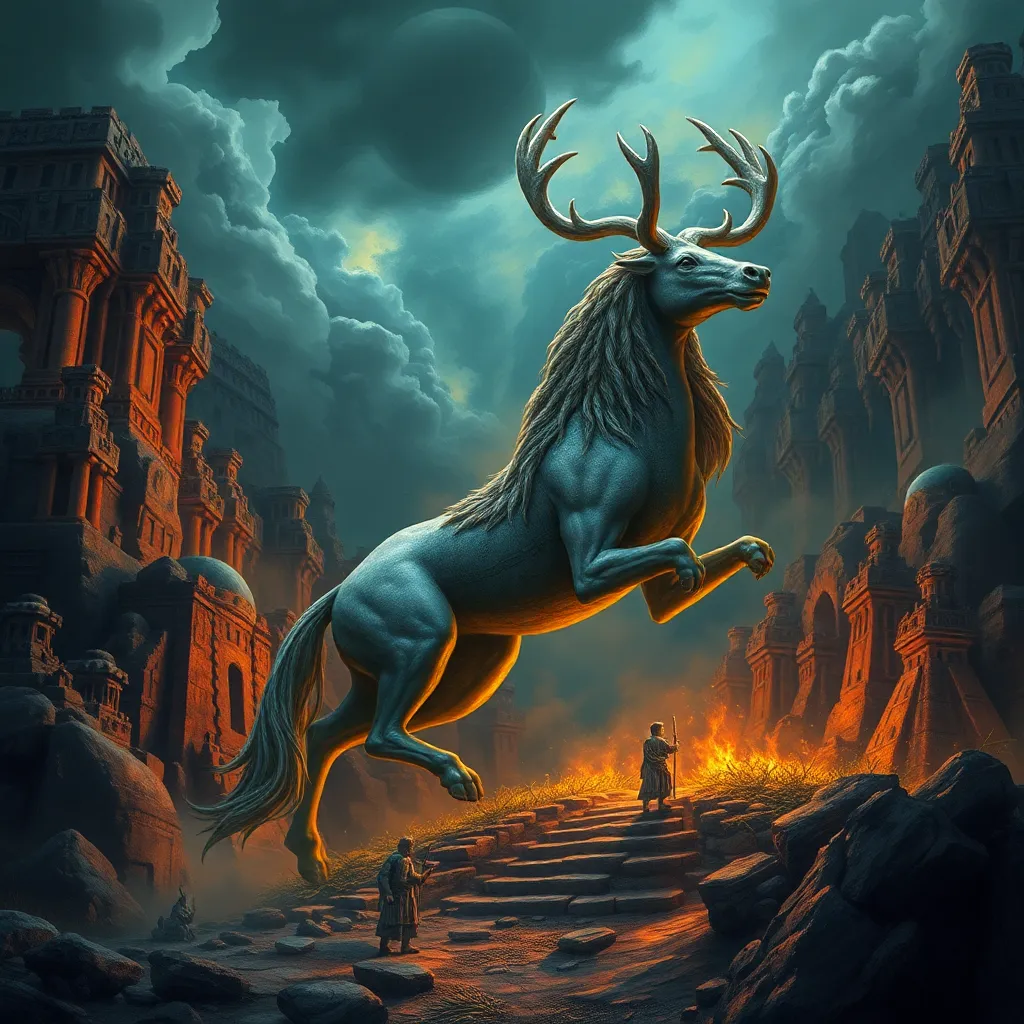The Cosmic Dance of Fate: Thai Beliefs in Destiny
In Thailand, destiny, known as "กรรม" (kamma), weaves through the fabric of life, shaping both the present and the future. This belief stems from the ancient teachings of Buddhism, which holds that every action has a consequence, and these consequences ripple through lifetimes, influencing the path of each individual. This concept of karma forms the bedrock of Thai mythology and deeply influences how people approach life's uncertainties.
The idea of destiny is not meant to be a passive acceptance of fate. Instead, it encourages a sense of responsibility for one's actions, as every choice, no matter how small, contributes to the tapestry of karma. This belief empowers individuals to strive for positive change and to cultivate good karma, leading to a more favorable destiny in this life and beyond.
The belief in karma and destiny intertwines with other spiritual beliefs in Thai culture. Many Thais believe in the power of supernatural forces, including spirits, deities, and ancestors, who can influence life's course. This belief isn't just confined to the realm of mythology; it permeates everyday life, influencing rituals, traditions, and even the way people make decisions.
The Divine Messengers: Deities and Spirits in Divination
In Thai mythology, the realm of the divine is teeming with powerful beings who hold sway over different aspects of life. From the majestic gods of Mount Meru to the playful spirits that inhabit forests and waters, these entities play a significant role in divination practices.
Deities like Brahma, the creator god, Vishnu, the preserver god, and Shiva, the destroyer god, are revered for their wisdom and knowledge. They are believed to possess the ability to see into the future and offer guidance to those seeking their wisdom. Other deities, such as the revered guardians of the four cardinal directions, are also called upon for protection and insight.
Spirits, known as "phi" in Thai, are believed to reside in every corner of the natural world. They can be benevolent or mischievous, and their presence is often felt in everyday life. Some are associated with specific places, like ancestral spirits who watch over their families, while others roam freely. In divination, these spirits are seen as powerful messengers, capable of communicating with the living and revealing hidden truths.
The Oracle of the Gods: The Role of Temples and Priests
Temples, known as "wat" in Thai, are more than just places of worship; they serve as spiritual centers where people connect with the divine and seek guidance. These sacred spaces are home to monks and priests, known as "phra" in Thai, who are believed to possess special knowledge and insight into the spiritual realm.
Priests are often sought out for divination practices, where they act as intermediaries between the human world and the divine. They perform rituals, interpret omens, and consult with deities or spirits to seek answers to life's mysteries.
One common form of temple divination involves "throwing sticks," where the priest uses small, numbered sticks to receive guidance from a particular deity. The priest interprets the numbers and offers advice based on the deity’s message.
The Whispers of the Universe: Methods of Divination in Thai Tradition
From the celestial dance of stars to the intricate lines of the palm, Thai tradition offers a diverse array of methods for unlocking the secrets of the future. These practices are not just about predicting events; they are about gaining a deeper understanding of one's place within the cosmic dance of fate and making informed choices based on that understanding.
– Astrology and the Celestial Dance
Thai astrology, deeply rooted in Hindu and Vedic beliefs, holds that the position of planets and stars at the time of birth influences an individual's personality, strengths, weaknesses, and life path. This astrological system, known as "Horoscope" or "Chaat," examines the individual's birth chart, which is a detailed map of the sky at the moment of birth. The placement of planets in different houses, known as "bhavans," reveals insights into the individual's destiny.
Thai astrology is a complex and nuanced practice, used to understand everything from romantic compatibility to career success. While it doesn't offer rigid predictions, it helps individuals understand their inherent strengths and weaknesses and navigate life's challenges with greater awareness.
Understanding the Omens: Interpreting Divination Readings
Interpreting divination readings requires both knowledge and intuition. The messages received through divination are often symbolic and require careful analysis. The priest, or diviner, uses their understanding of spiritual principles, symbolism, and the specific method used to interpret the omens.
For example, in the tradition of throwing sticks, each number has a specific meaning related to different aspects of life, such as health, wealth, or relationships. The priest carefully considers the combination of numbers and the context of the question to provide a comprehensive interpretation.
Palmistry, another popular method, involves reading the lines on the palm, which are believed to reflect the individual's life path and destiny. Each line is associated with specific aspects of life, and the length, depth, and intersections of these lines reveal insights into the individual's personality, strengths, weaknesses, and future possibilities.
The interpretation of divination readings is also influenced by the individual's personal beliefs and experiences. The diviner's role is to guide the individual in understanding the message, but ultimately, it is up to the individual to make sense of the guidance and apply it to their own life.
The Art of Living with Destiny: How Divination Shapes Thai Life
Divination isn't just about predicting the future; it's about understanding one's place in the grand scheme of things and making choices that align with one's destiny. In many aspects of Thai life, divination plays a significant role, providing guidance in everyday decisions, from choosing a career path to selecting a wedding date.
Before starting a new project, many Thais consult with a priest or fortune teller to seek auspicious timing and to gain insights into potential challenges and opportunities. Before making a major purchase, some consult with a diviner to ensure its positive impact.
Even in matters of love and marriage, divination plays a crucial role. Many couples consult with a priest or astrologer to find a compatible match and select an auspicious date for their wedding. The belief is that choosing a favorable date increases the chances of success and happiness in the marriage.
While people are not bound by the results of divination, the guidance provided helps them approach life with a sense of awareness and understanding. The knowledge gained allows them to make more informed choices, navigate challenges with greater confidence, and strive towards a fulfilling life.
The Prophecy of the Future: Historical Examples of Divination in Thai History
Throughout Thai history, divination has played a significant role in shaping political decisions, military campaigns, and social events. In ancient times, kings and monarchs often consulted with priests and astrologers to guide their decisions and ensure the well-being of the kingdom.
One notable example is the story of King Rama Khamhaeng, who lived during the 13th century. Famed for his wisdom and leadership, King Rama Khamhaeng is said to have consulted with a priest before embarking on his campaigns, seeking guidance on the best time to attack and the most favorable strategies.
Records show that divination was also used in determining auspicious dates for important ceremonies, such as coronations and religious festivals. The belief was that using a favorable date would bring good luck and prosperity to the kingdom.
The Enduring Legacy: The Influence of Divination on Thai Culture Today
The practice of divination remains a vital part of Thai culture today. While the practice has evolved over the years, the underlying beliefs and traditions continue to shape the way Thais approach life's uncertainties.
From the bustling city streets to the serene countryside, people of all ages and backgrounds seek guidance from divination practices. Whether seeking clarity on a personal decision, hoping for a favorable outcome in business, or seeking answers to life's mysteries, the belief in the power of the supernatural and the divine continues to be a strong presence in Thai society.
While some may see divination as a mystical tradition, it is also seen as a way to connect with a deeper sense of wisdom and understanding. It offers a framework for navigating life's complexities, making informed choices, and ultimately, finding meaning and purpose in the grand scheme of things.
FAQ
Q: Is divination a reliable way to predict the future?
A: Divination is not intended to be a tool for predicting specific events with certainty. Instead, it is seen as a way to gain insights, understand potential challenges and opportunities, and make more informed choices based on those insights.
Q: Can anyone practice divination?
A: While some divination techniques require specific knowledge and training, others, like palmistry or dream interpretation, can be learned and practiced by anyone. However, it's important to approach divination with a sense of respect and understanding of its limitations.
Q: Is divination related to superstition?
A: While some may view divination as superstitious, it's important to distinguish between unfounded beliefs and practices rooted in well-established spiritual traditions. Divination, within its cultural context, is a way to connect with something bigger than oneself and to find meaning in life's complexities.
Q: What is the role of the diviner?
A: The diviner serves as an intermediary between the individual and the spiritual realm. They use their knowledge and skills to interpret the messages received through divination and guide the individual in making sense of the information. The diviner's role is not to predict the future with absolute certainty; rather, it is to provide insights and guidance based on the spiritual principles and practices associated with divination.



